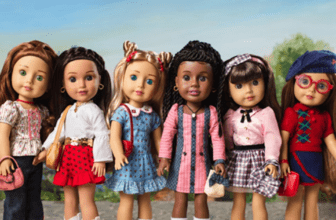
If you’re a mom, you probably know that moms as a whole aren’t 100% OK. But while we know this based on vibes, actual scientific data aren’t exactly abundant. But now, a new study published in JAMA Internal Medicine is giving us some hard numbers. And so we can now more confidently say: moms are increasingly struggling with their physical and mental health.
Researchers looked at data from 2016 to 2023 from the National Survey of Children’s Health, comprising nearly 200,000 mothers with children from infants to 17 who rated their mental and physical health on a scale of “excellent” to “poor.” (This is called Likert survey questions.) In analyzing the data, researchers noted a distinct decline in that period. Now what possibly could have happened in those years that would so profoundly and negatively affect mental and physical health? I guess it’s a mystery…
Moms were asked to rate their health as being either excellent, very good, good or fair/poor. Without adjusting for things like income, , those who reported excellent physical health declined from 28.0% to 23.9%. It’s not entirely bad news, though: good physical health rose from 24.3% to 28.1% (though that may include some of the women who used to have “excellent” health) while fair/poor physical health didn’t really change.
Similarly, unadjusted prevalence of excellent mental health also declined, and more sharply, from 38.4% to 25.8%. Good mental health rose significantly — 18.8% to 26.1% — but so too did fair/poor mental health (5.5% to 8.5%).
When adjusted for sociodemographic factors, it is probably not surprising that single moms, less educated moms, and moms whose children were uninsured or who relied on public health insurance programs fared worst of all. Physical health decreased by 4.2 percentage points (pp), excellent mental health decreased by 12.4 pp, and fair/poor mental health increased by 3.5 pp.
The findings support other large-scale studies that find increased levels of depression and anxiety among women of the same age, with the authors observing “Our findings are supportive of the claim made by some scholars that maternal mortality may be a canary in the coal mine for women’s health more broadly.”
The study’s authors assert that more research is needed to pinpoint what exactly is causing this decline but posit it may be any number of factors, including limited access to mental health care, social isolation, rising substance use disorders, and broader stressors such as inflation, rising income inequality, racism, gun violence, and climate change.
“Among younger individuals, particularly members of Generation Z, it has further been posited that declining mental health may be related to recent shifts in childhood experiences (eg, exposure to social media during childhood and adolescence) and increased awareness and social acceptability of mental health concerns,” they add.
Of course the study does have limitations. Self-reporting and the use of the Likert response questions may not paint a whole picture and certainly lack nuance, certain socioeconomic factors regarding the parents and question were not available which could paint a more accurate picture of this decline. Nevertheless, these are important data points to have as researchers continue to look at this persistent issue and how to address it.






